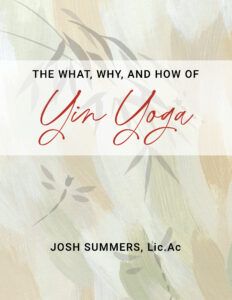This week, we turn to the intention behind Investigation. Often, either in our yoga or meditation practice, we can get into routinized patterns. We’ve done it before. We’ve done sun salutions. We’ve watched the breath. We’ve seen the mind get lost in wandering. And the more familiar we become with the landscape of practice, the more we run the risk of becoming complacent within the practice.
Investigation is the antidote. This means we wholeheartedly look into the nature of our experience. This means we take nothing for granted or accept anything outside of our own direct experience as true. This means we suspend all of our ideas about what we’re doing and return to Beginner’s Mind, which isn’t a mind devoid of experience, but a mind that is fresh and stripped of assumption.
Typically the focus of one’s investigation can go in one of two ways – a superficial bifurcation- which, ultimately, reveals unity upon realization.
One approach is to systematically investigate all aspects of one’s experience with keen curiosity. Here, a yogi investigates the ‘true nature’ of sounds, sensations, thoughts, sights, smells and tastes. In Buddhist parlance, these experiences inevitably reveal three characteristics of their nature: i) their nature to change, ii) their inability to provide lasting happiness, and iii) their emptiness or lack of self-solid.
The second approach is really the inverse of the first. Rather than looking out at all experiences with greater objectivity, a yogi would direct one’s investigative inquiry towards the very sense of self that is aware. Self-inquiry uses questions such as “What am I?” or “Who am I?”. As Ramana Maharshi put it, the purpose of the question is not to arrive at an answer, per se, but to ‘dissolve the questioner’. Before an answer to “Who am I?” arises in the mind, what do you see, hear, sense?
This week, I invite you to try both approaches, and let me know: do they take you to different experiences and different truths, or are they two methodologies inextricably linked to the same coin?
Originally published on July 27, 2011

